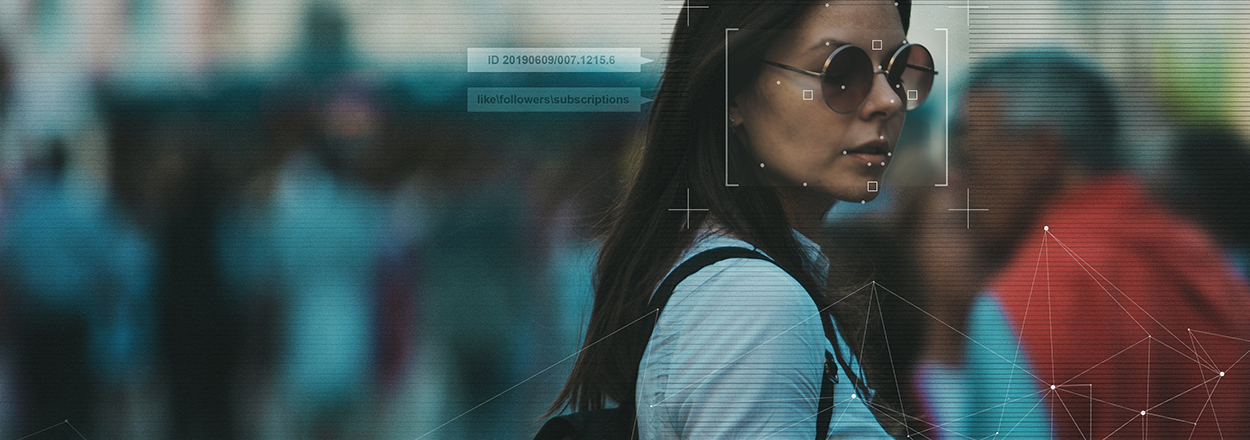
Travel insights from Jenna Buege, associate editor of The Compass
Evaluating the Pros and Cons of Facial Recognition in Travel
As futuristic as it may seem, facial recognition is no longer a work of science fiction. From airport security and hotel check-in to voice assistants and mood-based sales, artificial intelligence (AI) is making a big splash in the travel industry. Of course with big change comes resistance and some travelers are more than a little creeped out by AI’s presence in transit so let’s take a look at the good, the bad and the interesting of facial recognition in travel.
Pros
- Better security
- The number one goal of facial recognition technology is to identify and protect. The software can be used to prevent crime by using an internal database that quickly alerts staff to people who may not be who they say they are or who don’t have the clearance to be in a particular place. Many U.S. airports are already implementing facial recognition at check-in, baggage drop, security and during boarding. Some hotels are using the technology to allow guests to skip the check-in line and to enter their room without the need of a key.
According to Travel Market Report, top U.S. airports started implementing facial recognition technology in 2017 and has helped successfully intercept six “imposters” in the time since. The TSA has processed over 19 million travelers using facial recognition since its introduction to airport security.
- The number one goal of facial recognition technology is to identify and protect. The software can be used to prevent crime by using an internal database that quickly alerts staff to people who may not be who they say they are or who don’t have the clearance to be in a particular place. Many U.S. airports are already implementing facial recognition at check-in, baggage drop, security and during boarding. Some hotels are using the technology to allow guests to skip the check-in line and to enter their room without the need of a key.
- It’s fast and personable
- Matching faces in a real-world environment can help airports, hotels and other companies quickly identify travelers and tailor services to fit their needs. An implemented global technology would also mean less unnecessary paperwork and less time spent waiting in line for wary travelers.
- Less germs
- Facial recognition is no contact, meaning travelers won’t have to whip out their hand sanitizer at every other airport station requiring them to prove their identity.
- It’s smart
- Data analysis provided by AI allows businesses in the travel industry to deliver 5-star service and optimize their processes by collecting the demographics of travelers. This can mean a more customized experience for travelers based on AI’s understanding of their age, gender, likes and mood.
Cons
- Implementation comes at a cost
- All this fancy technology comes at a cost. Facial recognition software is extremely advanced and requires top-of-the-line cameras to guarantee accuracy and speed.
- Still a work in progress
- While facial recognition software is super high tech, it isn’t perfect. AI still isn’t fully effective at identifying race or gender. These programs also struggle to track change in appearance such as a fluctuation in weight, a new hair style and even facial hair. Another pain point for facial recognition software are camera angles because multiple angles are needed to properly identify a face.
- Storage
- It’s easy to imagine that our digital data is floating around in Google or Apple’s magical cloud somewhere, but the reality is that to store all this digital data we need the help of hundreds of computers. Facial recognition technology is no different and videos and high-quality images result in a lot of data, requiring organizations to have numerous systems on deck to process everything quickly.
- It’s kind of creepy
- Something about AI and facial recognition is a little scary. Maybe it’s the lack of privacy, maybe it’s the feeling of being watched or maybe the average traveler has just the slightest hint of conspiracy theorist inside of them. But, our hesitance to embrace AI doesn’t come unwarranted; privacy and data sharing is a legitimate worry as many people believe that the collection of biometric data is overly intrusive. In addition, there is also the very real concern of third-party sharing without traveler permission. However, these issues can be avoided as long as travelers are always provided the option to opt out of a situation where they are uncomfortable.
You May Also Like
Delta Air Lines Unveils First Biometric Terminal in Atlanta
Passengers at the Delta terminal in Atlanta can use facial recognition technology “from curb to gate,” in what the airline is touting as the first biometric terminal. Delta has been installing biometric features in Terminal F at the Hartsfield-Jackson Atlanta International Airport since announcing i
How TSA’s Use of Facial Recognition Could Affect Travelers
The Transportation Security Administration (TSA) recently revealed its plan to use facial biometrics, aka facial recognition, to enhance security and improve travelers’ experiences. It seems as though TSA knows that the experience at U.S. airports is not great, since they’re continuously trying to i
December 2019 Editor’s Note
Ho, ho, ho-ly cow, it’s already December. I’m going to take this time to remind you of the REAL ID deadline, which is now less than 11 months away. Here's our article on it. Now to the fun stuff. December we’re focusing on technology. How could we not? First I need to know how you feel about facial
Welcome to the Future: Your Face is Now Your Passport
Recently, the Transportation Security Administration (TSA) and airports themselves have implemented new aviation technology in order to speed up the airport process while improving accessibility for travelers. Here are a variety of exciting technological advances in four airports around the world. A